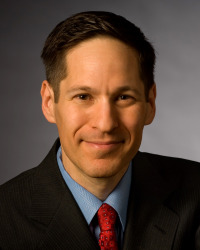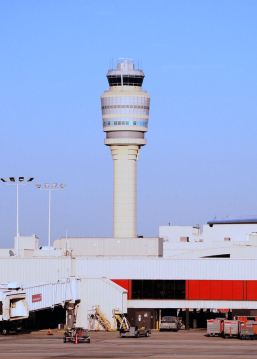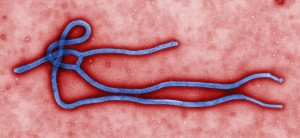Atlanta’s airport will be one of five in the nation that will conduct tougher screenings of passengers arriving from three West African countries at the center of the Ebola crisis.
The announcement by federal officials came just hours after the first Ebola patient diagnosed in the United States died of the disease at a Dallas hospital. The man had recently arrived from Liberia, one of the West African countries involved.
“We’re stepping up protection for people coming into this country and for Americans related to travel,” CDC Director Tom Frieden told reporters at a media briefing at CDC headquarters in Atlanta on Wednesday. “Protecting Americans is our No. 1 priority.’’
The new screening measures will take place at New York City’s John F. Kennedy International Airport; Newark Liberty International Airport (also in the New York City area); Dulles International Airport outside Washington; Chicago’s O’Hare International Airport; and Hartsfield-Jackson International Airport in Atlanta.
Those five airports are the places of entry into the United States for 94 percent of travelers arriving from Guinea, Liberia and Sierra Leone. About 150 passengers a day enter the U.S. from those three nations, where more than 3,700 people have died from Ebola.
Travelers from those countries will be taken to special screening areas at the airports. Officials will observe them for symptoms and will ask questions about possible exposure to Ebola. Medical staff will take passengers’ temperature with thermometers that do not require physical contact.
If the traveler shows symptoms, or gives answers that raise concerns about possible exposure, a CDC worker will examine the person at a quarantine station.
Other travelers arriving from the West African nations will receive information about symptoms and be asked to provide detailed contact information.
“We can’t make the risk zero here. We wish we could,” Frieden said.
Frieden said exit screenings of people at West African airports over the past two months have kept 77 people from traveling — 74 because of fever and three because of other symptoms. None of those people has since been diagnosed with Ebola, Frieden said.
Ebola patients are only contagious when they exhibit symptoms of the disease, such as fever. But the incubation period between infection and symptoms can run as long as 21 days.
Frieden said banning all travel to affected areas in Africa would make it harder for health workers to get into those countries, because they couldn’t get out.
Thomas Eric Duncan died of the disease Wednesday at a Dallas-area hospital. He came to the United States from Liberia, but officials say he did not show symptoms upon arrival or for days afterward.
Duncan arrived in Dallas on Sept. 20. He went to Texas Health Presbyterian on Sept. 24 but was sent home with antibiotics. After his condition worsened, he returned to the hospital, was admitted on Sept. 28 and was diagnosed with Ebola two days later.
“Today, we are deeply saddened by the death of the patient in Dallas,’’ Frieden said.
The new screening measures will lead to the CDC adding staff at the five airports, Frieden said.
Some success in Africa
Earlier, other CDC officials told reporters that 138 agency workers are deployed overseas in battling the epidemic.
Dr. Tom Kenyon, director of the Center for Global Health, said that there has been some progress in fighting Ebola in West Africa.
He cited additional treatment units in Monrovia, the Liberian capital; and some improvement in burial practices, which “if done incorrectly . . . [are] a major source of transmission.’’ Public education on Ebola is getting better, he said.
“We still have a long way to go,” Kenyon said. Case counts continue to escalate in Guinea, he added.
The “tipping point,’’ Kenyon said, will come with greater public understanding of the disease and a change in people’s behavior. “It is going to take that behavior change to really bring this epidemic to an end.”
Organizations fighting the disease need more resources such as protective equipment and medical gloves; vehicles to allow staffers to travel and transport corpses; and more labs and treatment isolation units, among other items, Kenyon said. “We need everything.”
Kenyon said the way the disease so far has been kept from spreading in Nigeria, Africa’s most populous nation, “is a real success story” of the current outbreak. Nigeria is in the same region as the three other countries.
Several weeks ago, a passenger with Ebola arrived at a Nigerian airport and transmitted the disease to airport workers. “That’s now contained,’’ Kenyon said.
It took more than 1,000 health care workers and 19,000 household visits to track the contacts in Nigeria. “It was a massive undertaking,’’ he said. “It can be done.”



